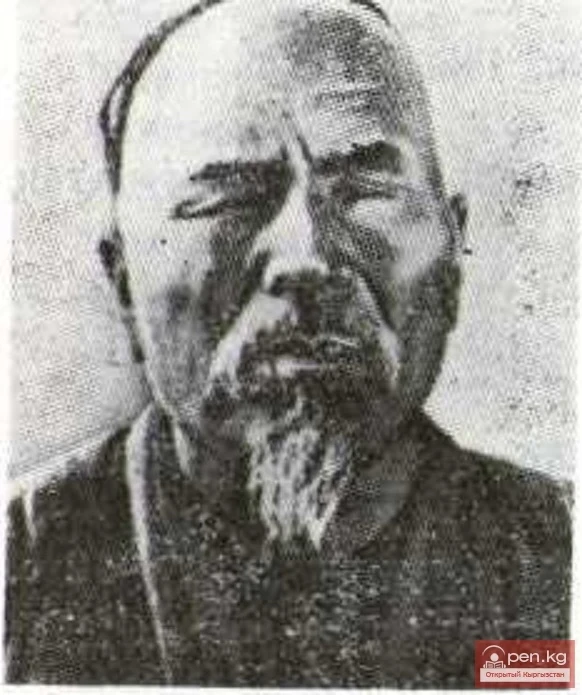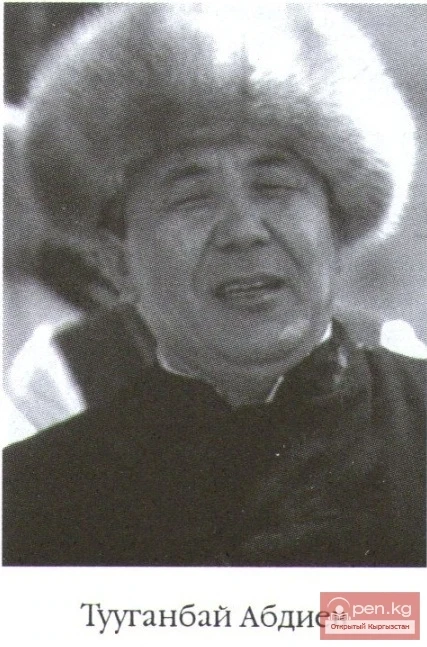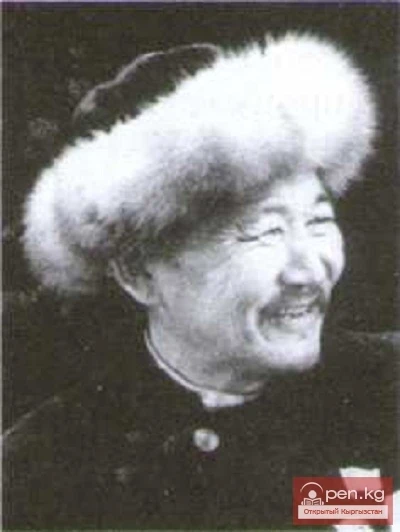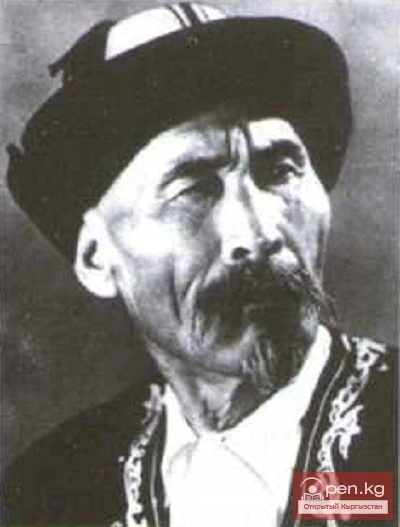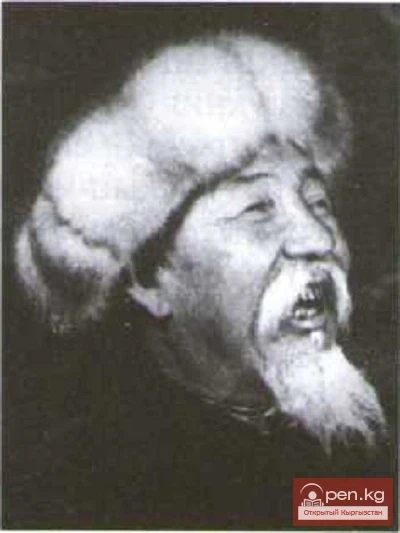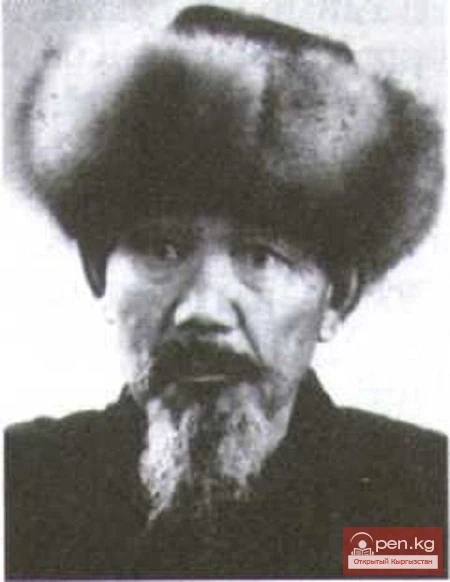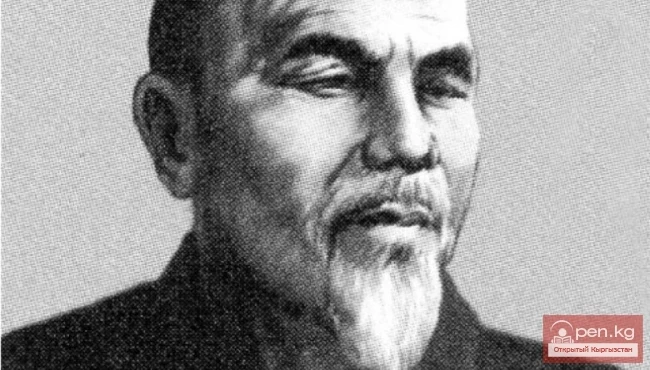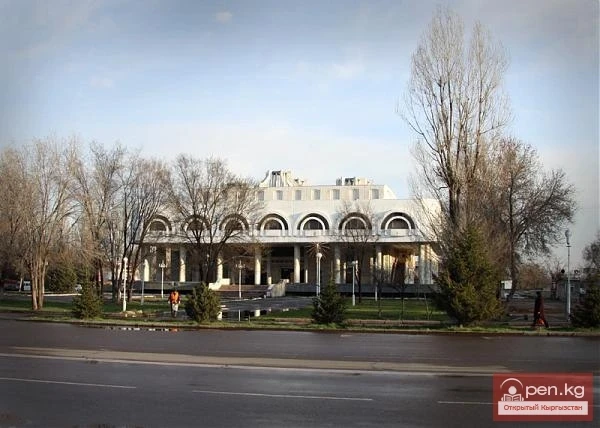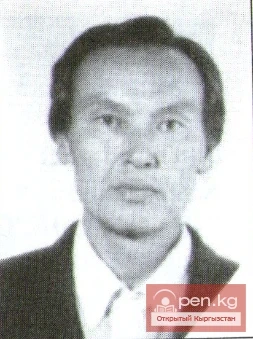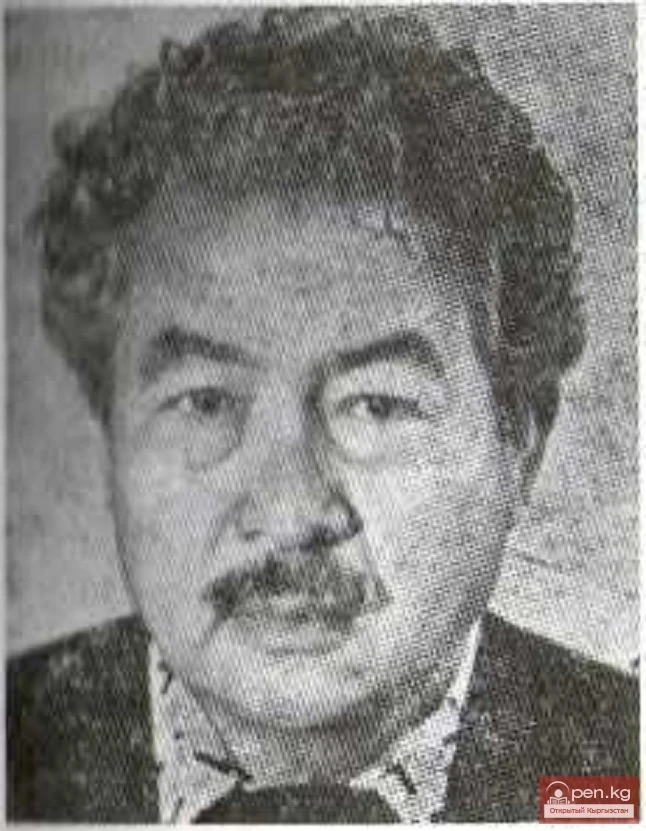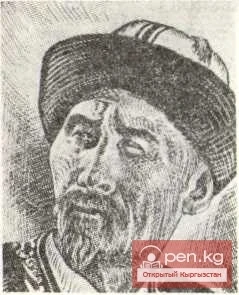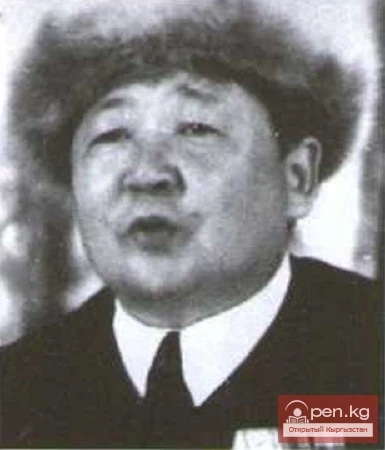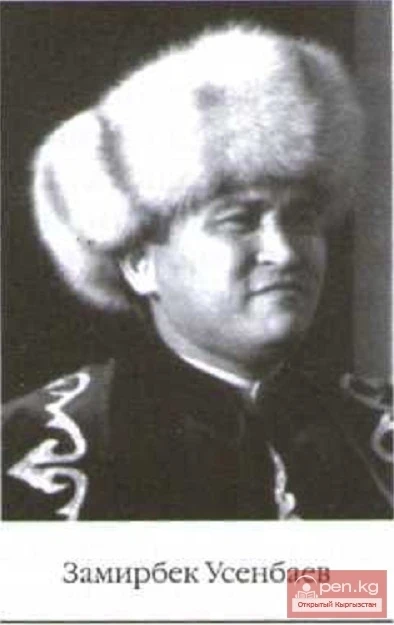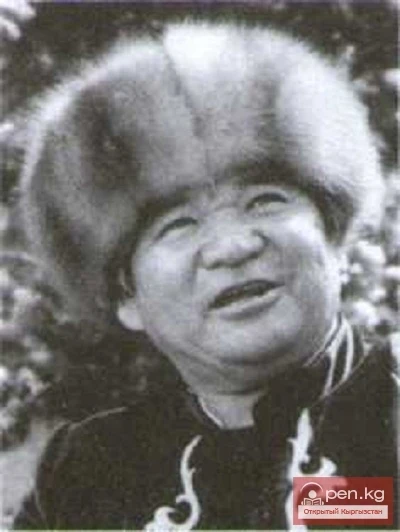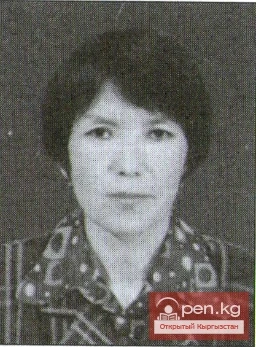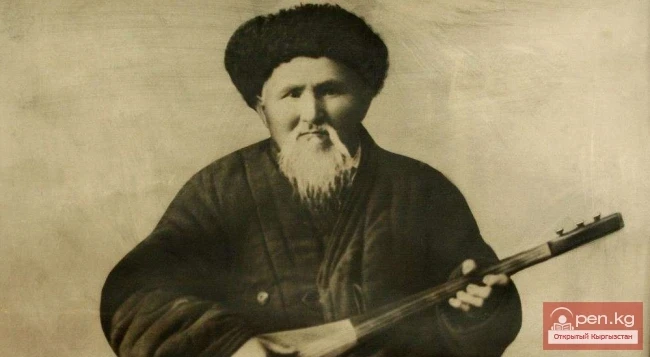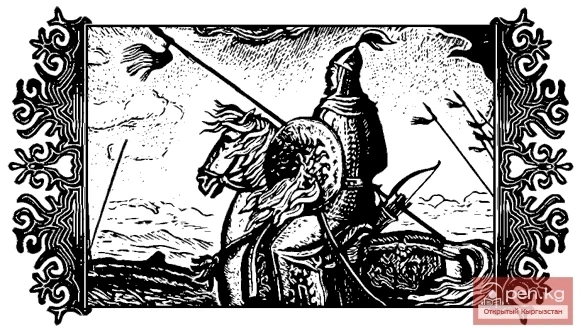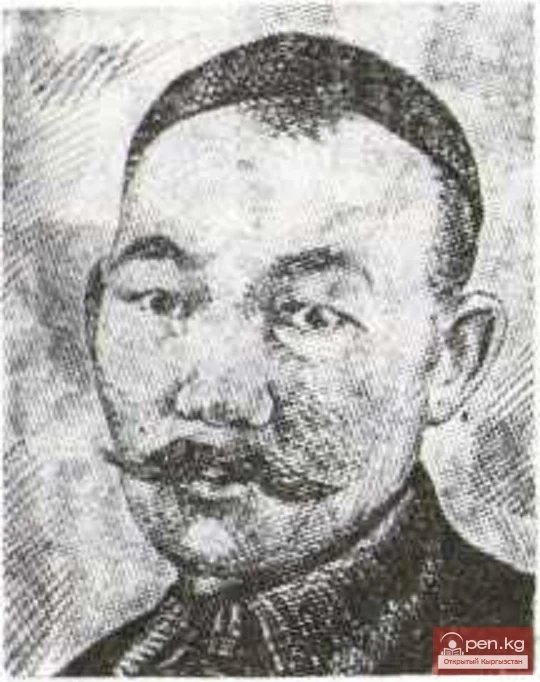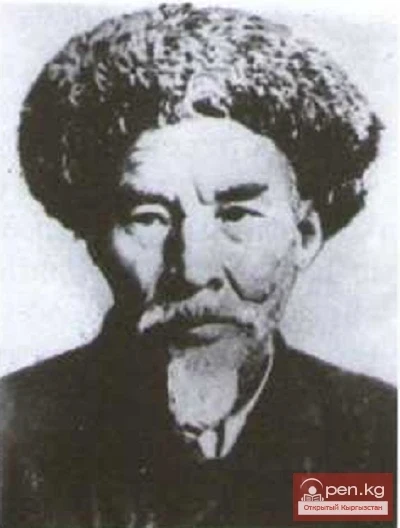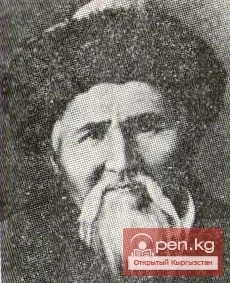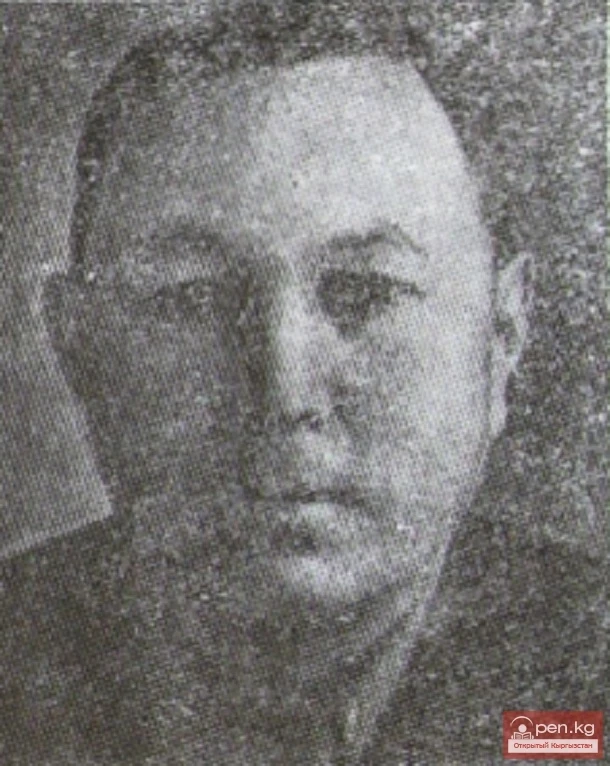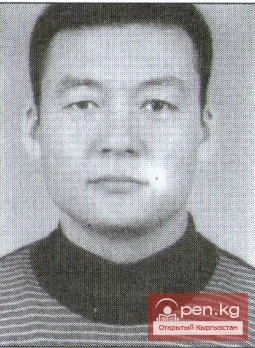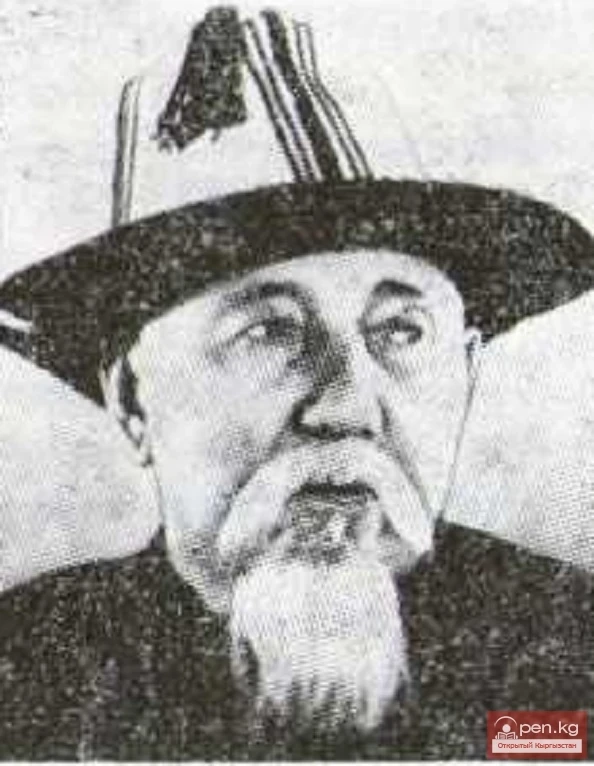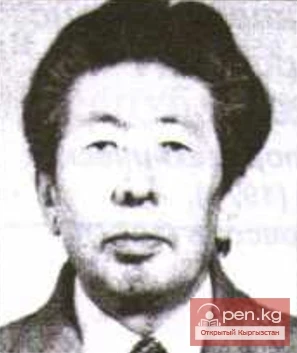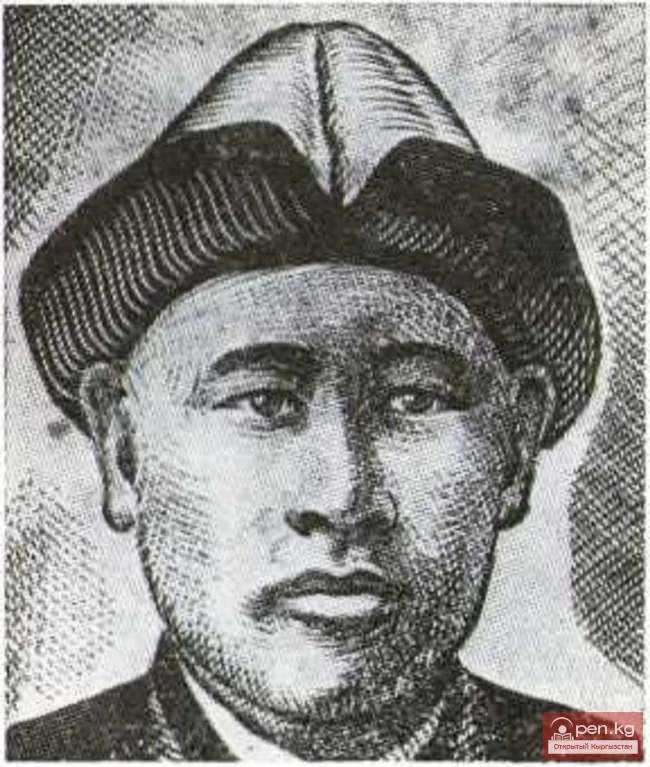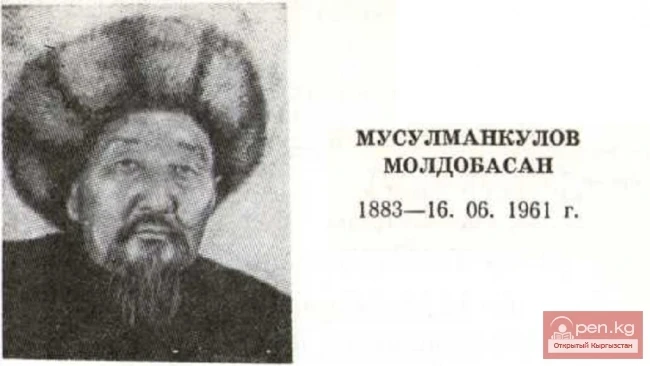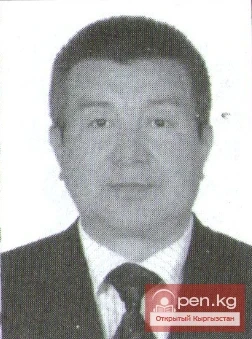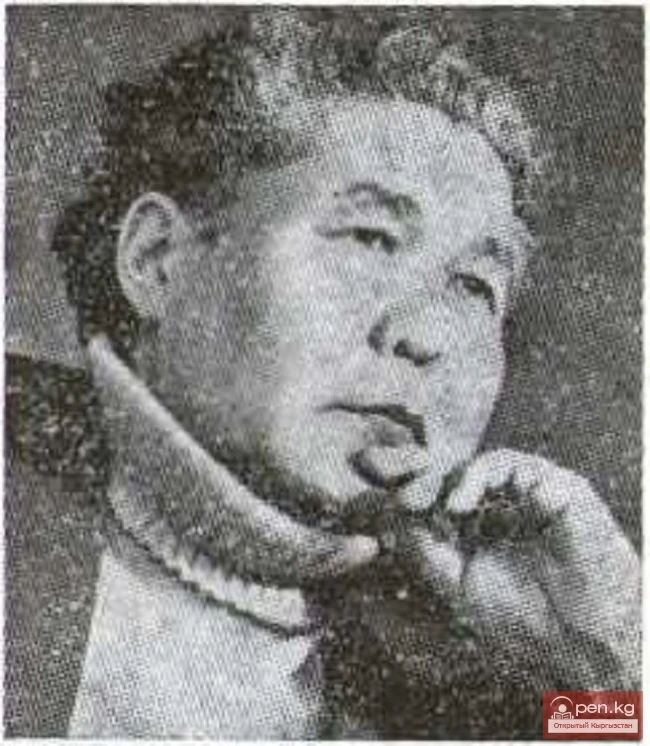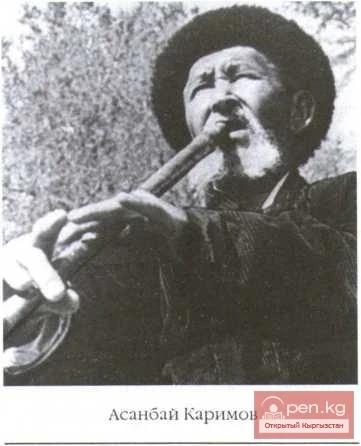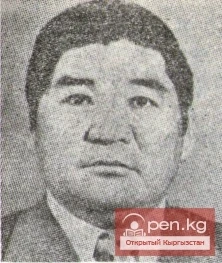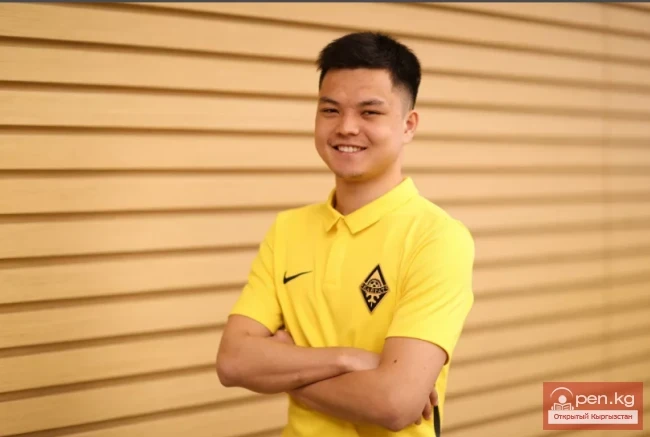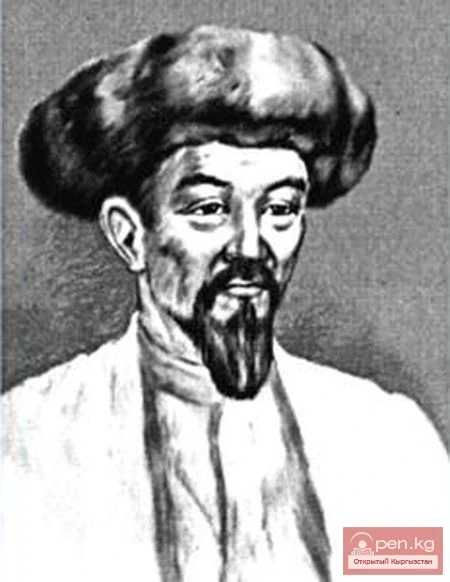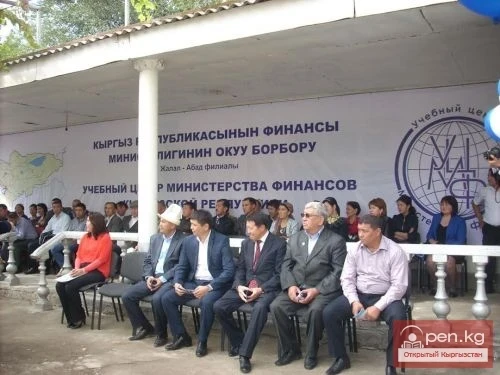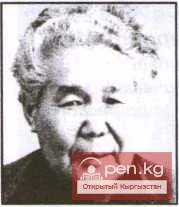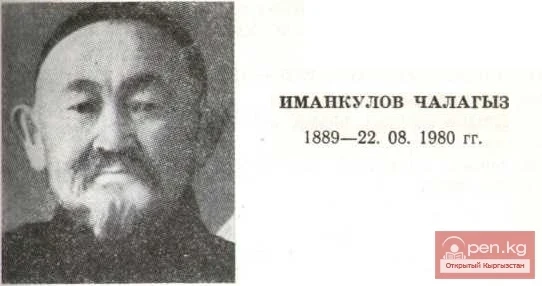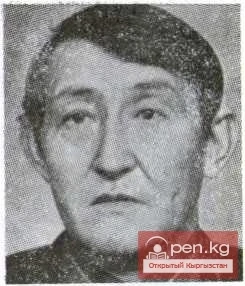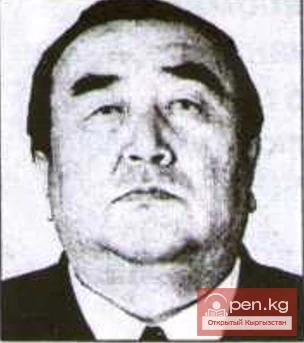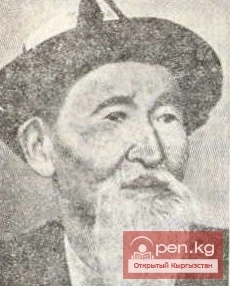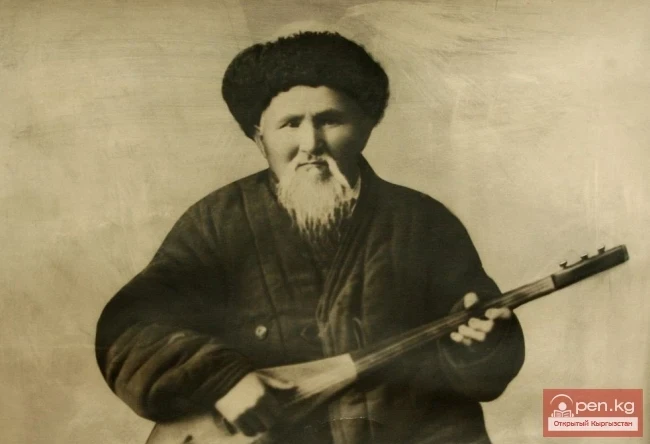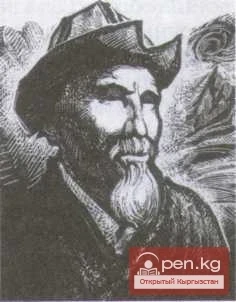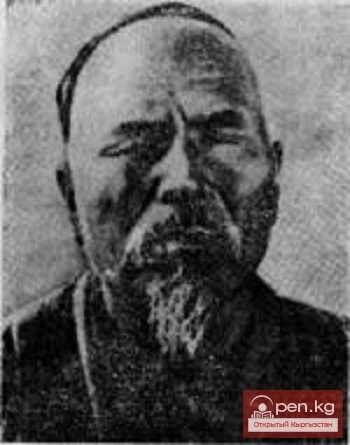
Barpy Alykulov (1884—1949) — an improvisational poet, singer, thinker, and classic of the folk song and poetic culture, a member of the Union of Writers of the USSR (1947). He was born in the village of Achi in the Suzak district of the Jalal-Abad region (now the same-named area). His father, Alykul, was well-versed in folk creativity.
Barpy actively participated in the establishment of Soviet power in southern Kyrgyzstan, and in the 1920s he was a member of the peasant union "Koshchu," the chairman of the Suzak labor committee, and the deputy chairman of the Changet rural council of the Jalal-Abad canton. In the early 1930s, after losing his sight due to a severe illness, he devoted himself entirely to creativity.
Barpy began composing songs at a fairly young age, encouraged by his father. Alykulov started with songs without instrumental accompaniment and remained true to this tradition until the end of his days.
His first song was "The Torment of the Cruel Khan" ("Zalim handyn azaby"), which told of the plight of the people in the Kokand Khanate. At the age of 15, Barpy first tried his hand at creative singing competitions with well-known akyns in the region. At 20, he met Toktogul, which ultimately defined the social direction of his songs.
Lyricism is one of the main directions of Barpy Alykulov's song and poetic creativity. He celebrates the beauty of his native nature and expresses the inner world of man through its images. For instance, the songs "Flowing River" ("Akkan suu") and "Wind" ("Shamal"), which belong to the genre of "sanat yry," contain philosophical reflections on the fertilizing power of nature, which preserves all living things. The song "My Beauty" ("Melmelum") became popular thanks to the akyn Toktosun Tynbekov. The song "Unrepeatable" ("0zgechem") was performed with great success by Barpy himself. In the tragic song "Death" ("Ajal"), the author reflects on its inevitability. The new reality is addressed in "Song of Two Eras" ("Eki zaman тууралуу ыр"), "Party," and others.
In 1936, Barpy Alykulov participated in the republican folk creativity olympiad with a solo akyn improvisation.
During the Great Patriotic War, he created songs dedicated to the Soviet Army, the fight against fascism, and the friendship of nations.
Barpy Alykulov created his works not only in solo but also in dialogical akyn genres. The most famous, which has entered the repertoire of other performers, is his "aytysh" with Toktogul, which took place during the first meeting of the two akyns in 1904, when Barpy specially arrived in Ketmen-Tyube to meet Toktogul and learn from him.
The students of the akyn continue the vocal tradition of the southern akyn school (singing without accompaniment), of which Barpy was a bright representative.
